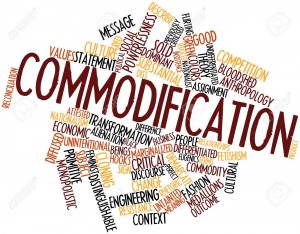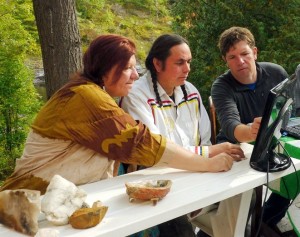Traditional or Indigenous knowledge is demanding more attention from the world of international patent law. As more cases arise, so does the need to address the issue of who rightly claims a patent, especially since traditional knowledge is not protected by conventional intellectual property laws.
Indigenous Knowledge

Indigenous Knowledge | The Issue


Indigenous Knowledge | Why It Matters
This issue is crucial to indigenous peoples for a number of reasons. The most apparent is the wrongful legal claim by outside groups to sometimes ancient knowledge, excluding the indigenous peoples (and rightful owners of this knowledge) from any associated material gain. A recent example is the legal claim over traditional yoga poses made by American teachers of yoga.

A Linguistic Solution
In the past few years, important ground has been made in the expansion of intellectual property law to protect the traditional knowledge of indigenous peoples. Legal scholars have taken on the subject and proposed a number of legal options, such as the use of a sui generis legal system to consider these cases or the employment of private protocols for dealing with indigenous communities.
One particularly interesting and successful case offered a linguistic solution to this problem. The Government of India established the Traditional Knowledge Digital Library, a database of traditional knowledge. A major factor in the TKDL’s success has been its translation of this indigenous knowledge. Previously, much of India’s traditional medicinal knowledge only existed in Sanskrit, Hindi, Arabic, Urdu and Tamil. Due to language barriers, this knowledge was not accessible to Western patent offices. The TKDL project is now searchable in English, French, German, Japanese, and Spanish. Providing a widely accessible record of traditional knowledge to prove to patent offices that this knowledge had previously existed is crucial in ensuring the legal protection of indigenous cultures.
Learn more about our Legal Translation and our Patent Translation services.
About Language Connections:
Language Connections is one of the top language service companies in the US. Over the last 30 years, we’ve focused on providing the best business translation services, interpreting services, as well as interpreter training and customized language training programs. In addition to top-tier corporate language training, we offer certified corporate interpreters and professional business translation services in 200+ languages. Our network includes linguists with backgrounds in all major industries. They’re ready to meet your needs, whether they’re for technical translation services, legal translation, government translation services, international development translation services, education translation services, life sciences translation, or something else. Reach out to us today for a free quote on our cost-efficient and timely translation services, interpreters, or other linguistic services.
Language Connections LLC
2001 Beacon Street, Suite 105,
Boston, MA 02135
Phone: +1-617-731-3510
Email: service@languageconnections.com




